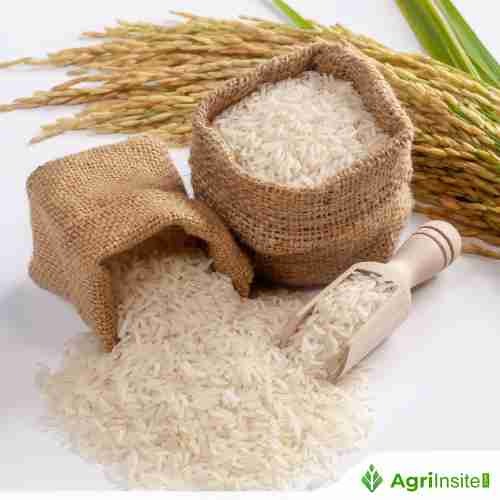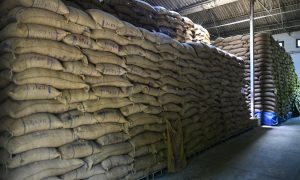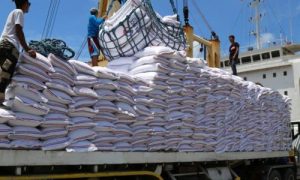Indian Basmati exports to UK expected to touch 2.5 lakh metric tonnes

The India-UK CETA removes customs duty on brown rice, paving the way for Indian Basmati exports to rise from 1.85 to 2.5 lakh MT. Punjab, India’s top producer, will benefit most. The deal covers GI-tagged varieties but excludes milled rice, disappointing some exporters.
CHANDIGARH: The India-UK Comprehensive Economic and Trade Agreement (CETA), signed in London in the presence of Prime Minister Narendra Modi and his UK counterpart Keir Starmer, is poised to significantly boost India’s Basmati rice exports to the United Kingdom—offering fresh momentum to farmers and the agri-export sector, particularly in Punjab.
With the removal of customs duty on brown rice, Indian exporters expect Basmati shipments to the UK to rise from the current 1.85 lakh metric tonnes (MT) to 2.5 lakh MT annually in the near future. The UK currently imports nearly 3 lakh MT of Basmati rice every year.
Exporters believe the deal levels the playing field, eliminating tariff disadvantages that previously favoured competitors like Pakistan. “This agreement opens up vast opportunities. Until now, India had a 55 per cent share in the UK’s Basmati market, while Pakistan held 44 per cent, mainly due to lower pesticide levels and its traditional Basmati appeal,” said Ranjit Singh Jossan, Vice-President of the Basmati Rice Millers and Exporters Association of India.
He noted that Indian exports to the UK have seen steady growth over recent years—from 1.29 lakh MT in 2021–22, to 1.43 lakh MT in 2022–23, and 1.85 lakh MT in 2023–24. In comparison, Pakistan exported around 1.09 lakh MT in the same period.
Jossan added that the CETA covers all GI-tagged Basmati varieties, including the popular 1121 and Pusa 1401 cultivated in Punjab, Haryana, and Madhya Pradesh. “The agreement not only boosts exports but also gives India’s traditional rice varieties much-needed international recognition,” he said.
Direct boost to Punjab’s agriculture economy
Punjab, the country’s largest Basmati producer, contributes nearly 40 per cent of total output and played a major role in India’s Basmati exports worth Rs 48,000 crore in 2022, according to the Agricultural and Processed Food Products Export Development Authority (APEDA). The state is expected to be among the biggest beneficiaries of the India-UK deal.
The UK also acts as a strategic gateway for transit exports to other European markets, where Indian exporters can now compete on par with those from the EU. “The removal of duties offers a huge advantage to Indian farm and food processing units. This move will help revive MSMEs, improve farm incomes, and strengthen the rural economy,” said Jossan.
While the trade pact is being hailed as a breakthrough, concerns over pesticide residue in Indian Basmati continue to loom large. Jossan acknowledged the issue but pointed out that proactive steps are being taken. “The Punjab government has banned harmful pesticides over the last three years. Haryana is also making progress. Awareness among farmers is increasing, and quality is improving steadily,” he said.
Disappointment over milled rice exclusion
Despite the upbeat mood, exporters expressed disappointment that semi-milled or wholly milled rice (HSN Code 1006:30) was not included in the duty-free list. “This was a long-standing demand. Its exclusion means exports in this category will remain limited. A big opportunity was missed,” said Jossan.
Under the India-UK CETA, nearly 95 per cent of India’s agricultural exports to the UK—including Basmati rice, millets, cotton, groundnuts, fruits, vegetables, onions, spices, pickles, tea, and coffee—will now be duty-free. Agriculture and food processing account for 14.8 per cent and 10.6 per cent, respectively, of the total value of agreed goods under the pact.
In 2023–24, India exported 59.42 lakh metric tonnes of Basmati rice, with major buyers being Saudi Arabia (11 LMT), Iraq (8 LMT), Iran (7 LMT), Yemen (3 LMT), and the US (3 LMT).
With the easing of tariff barriers and policy support, Indian exporters are optimistic that the country’s presence in premium markets like the UK will grow significantly—strengthening the ‘Make in India’ and ‘Vocal for Local’ vision on the global stage.
To Read more about Rice News continue reading Agriinsite.com
Source : The New Indian Express















